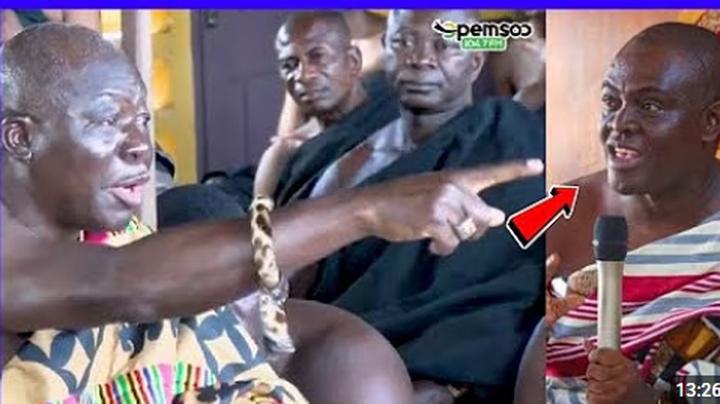The simmering tensions between Otumfuo Osei Tutu II and Osagyefo Oseadeeyo Agyemang Badu II have escalated beyond mere protocol disputes, plunging deep into Ghana’s historical, cultural, and political soul. Recent comments by Otumfuo reignited long-held claims about the Dormaa stool’s origins and legitimacy, pushing back against Dormaahene’s assertions that Dormaa existed before the formation of the Ashanti Kingdom. Otumfuo’s reminder that his uncle installed Dormaahene’s predecessor was not just an ancestral anecdote—it was a reassertion of hierarchical memory and royal supremacy.
In response, Dormaahene delivered one of his boldest declarations yet, challenging Otumfuo’s authority to influence chieftaincy matters outside Ashanti jurisdiction. His staunch resistance to Otumfuo’s attempt to elevate Fiaprehene in the Bono Region was framed as a defense of constitutional boundaries and regional autonomy. Dormaahene went so far as to pledge his readiness to be imprisoned rather than submit to what he perceives as overreach.
This public clash cuts into the fabric of traditional governance, raising questions about how ancient stools coexist with modern democratic frameworks. The 1992 Constitution does not define kingship, giving Dormaahene grounds to question Otumfuo’s claim to monarchic status. And yet, Otumfuo, seated on the Golden Stool, commands reverence that few public figures in Ghana can rival.
Observers argue that Dormaahene’s persistent provocations may serve a strategic purpose—undermining Ashanti influence in national politics, a move that could recalibrate power dynamics across regions. Okatakyie Afrifa, among others, warns that this could fracture bonds between Ashanti and Bono families, destabilize marriages, and provoke cultural schisms with lasting consequences.
At stake is more than respect between stools. It is the power to define Ghanaian history, to shape national identity, and to determine whose voice speaks loudest in matters of heritage and governance. Both Otumfuo and Dormaahene command large followings, their words echoing through airwaves and palaces alike, drawing the nation into debates about legacy, authority, and destiny.
As the ripple effects of this feud spread, Ghanaians are left to reflect: is this a moment of reckoning for the chieftaincy institution, or simply another chapter in a long saga of royal rivalry? In a country where tradition sits side by side with constitutional modernity, perhaps the true question isn’t who holds the greatest stool, but who holds the nation’s future vision in balance.
Source : Asante Man
